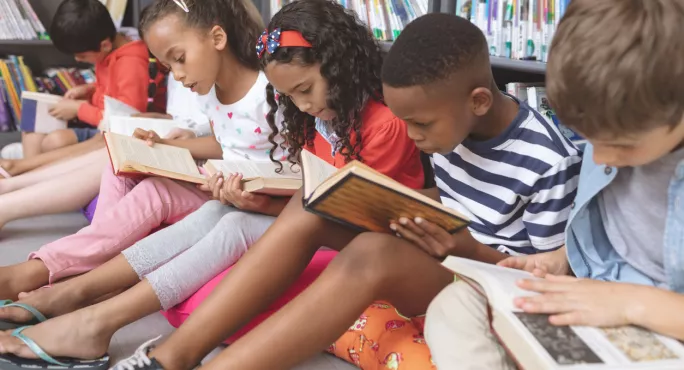England’s 9- and 10-year-olds are bucking international trends by showing an increasingly “positive” attitude to reading, research has revealed.
Out of 20 countries and provinces taking part in the research, all but two experienced a decline or no change in pupils’ attitudes to reading over a 15-year period.
But in England, pupils’ attitudes improved, the findings show, with increasing numbers saying that they enjoy books and would be happy to receive a book as a gift.
The data comes from a new analysis of the International Association for the Evaluation of Educational Achievement (IEA’s) Progress in International Reading Literacy Study (Pirls), a global assessment of how well children read that has been administered every five years since 2001.
News: New global map to show spread of ‘21st-century skills’
Research: Smaller classes don’t equal better results
News: ‘Little or no evidence’ that phonics improves reading
It assesses 4th grade pupils (aged 9 or 10) on how well they absorb information from reading and on their “literary experience”.
The latest analysis looks at 18 countries that participated in the four rounds of Pirls between 2001 and 2016, plus two benchmarking participants, the Canadian provinces of Ontario and Quebec.
Of these, 13 countries - along with Ontario - showed a decline in how much pupils liked reading on average since 2001.
The US, Quebec, New Zealand and Hong Kong had no statistically significant change, according to “Troubling trends: an international decline in attitudes towards reading”.
Only England and Iran showed an increase in pupils’ positive reading attitudes.
The researchers looked at how likely pupils were to agree with the following statements: “I enjoy reading,” “I would be happy if someone gave me a book as a present” and “I think reading is boring”.
The report notes that “reading more has been found to be related to student achievement, vocabulary growth, and positive brain development” and that a “catalyst for reading for enjoyment is one’s attitude toward reading”.
It adds: “Across four cycles of the assessment over a 15-year time period, Pirls has consistently found that students who like reading tend to demonstrate higher 4th grade reading achievement, consistent with a wide breadth of other studies.”
The questionnaires also measure how much participants’ parents liked reading, as analysis of Pirls data has found that “students who have parents who report positive attitudes toward reading also tend to have higher 4th grade reading achievement”.
England and the US did not conduct this part of the questionnaire. But 14 of the 18 countries and provinces saw a decline in parental enjoyment of reading.
The parents’ scores were calculated based on how much they agreed with statements including: “Reading is an important activity in my home”, “I read only if I have to”, “I like to spend my spare time reading” and “I read only if I need information”.
The report concludes that more research is needed into whether the growth in digital information is to blame for the declines in attitudes towards reading across most countries in the study.
It says: “Growth in digital information raises questions about how the prevalence of new media, such as reading online newspapers, blogs, social media, and emails, may have influenced the results.
“Future research should examine the relationship between reading attitudes and the ever-expanding mediums through which people read in this digital era.”




